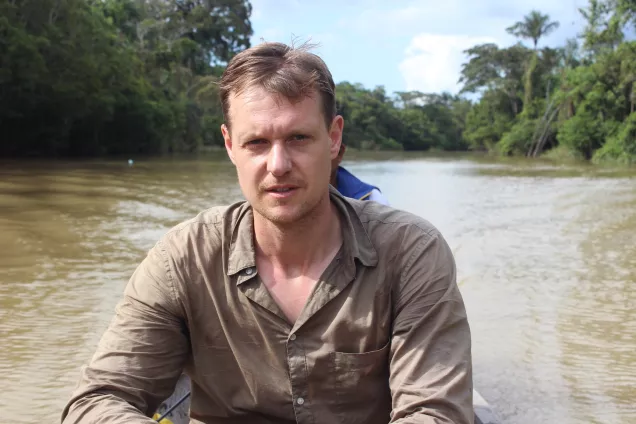– The fight for land and the environment is also a fight for human rights, traditions, shared memories and connections to place, says Juan Antonio Samper, PhD-student at LUCSUS.
– The sustained violence therefore has greater implications than just loss of physical territory, it risks pushing these important struggles into oblivion, effectively erasing years of capacity and knowledge to enact political, environmental, and territorial change in the Amazonas.
Through ethnographic research, interviews and field work, Juan Antonio Samper, and senior lecturer Torsten Krause, have inquired who the social leaders in Colombian Putumayo region are, and what they do to defend their territories.
They found that the activities of social leaders can be grouped into different categories, including:
- Mobilisation and direct protests to maintain land rights
- The denunciation of human rights violations in relation to land seizures and violence
- Pedagogical resistance to organise and educate their communities
- Reparation and compensation to people who have lost their land
Social leaders also work actively to pass on the history of their communities’ political struggles through oral traditions.
The Colombian peace agreement has reconfigured the strugge for territories
The social leders work is taking place in the wake of the former Colombian government’s peace agreement with the armed group FARC-EP in 2016, which have reconfigured the struggle for territories in the country, with drug traders, armed groups and agroindustrial and extractivist companies all vying for access to the Amazonian rainforest. Since 2016, more than 1500 social leaders have been killed, and many more silenced by threats, violence, and gender-based violence. Currently, it is difficult to find the perpetrators of these crimes and bring them to justice, note the researchers.
– If the violence continues, and the peace agreement is not able to deliver on improved rights for indigenous peoples, rural communities, and vulnerable groups, we risk deepening one of the main root causes of armed conflict in Colombia: the historical land struggles that so far have meant so much loss of territory and collective memory for these groups of people, says Juan Antonio Samper.
– Shining a light on social leaders and what they do is ultimately about documenting their fight and creating a record of resistance, so that it is not forgotten, and can be carried on. Their work is also about safeguarding biodiversity, which is hugely important for the survival of the planet and should be supported.
The research is start of a prolonged research effort
He and Torsten Krause see this research as the start of a prolonged research effort in the region focusing specifically on social leaders. Their aim is to support and give voice to these communities, and to highlight how environmental and human rights are inextricably linked, and connected to memory, traditions, identity and place - not only in Colombia, but in the whole Amazonian region.


